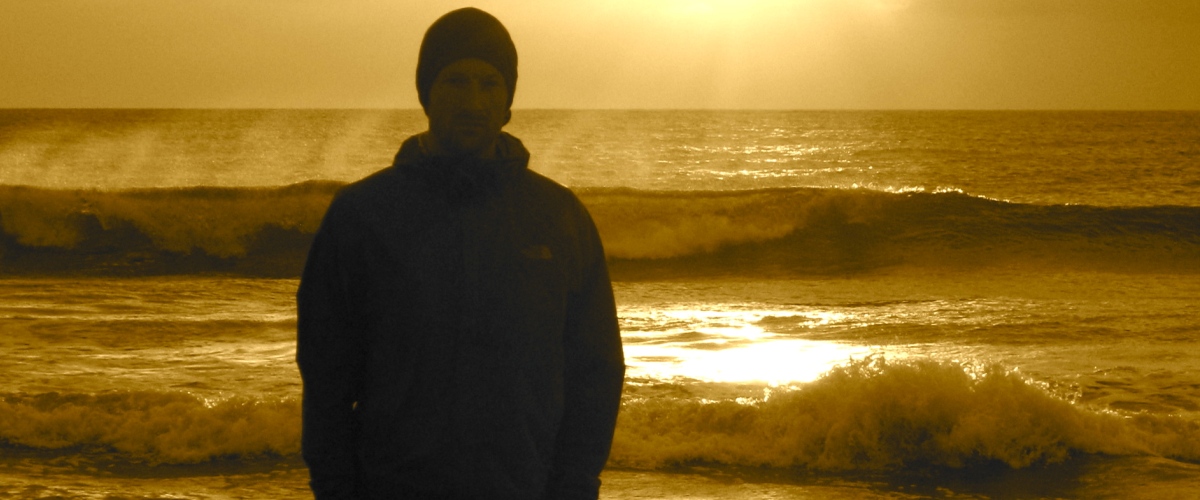James Radcliffe’s ethereal compositions – which manage to simultaneously sound both larger-than-life and magnificently primitive – are all written, recorded, produced, mastered and mixed by the man himself. They have earned the Scottish musician tens of thousands of followers on Twitter. But far from seeing himself as reaching a peak of artistry or success, Radcliffe believes himself to be “a work in progress. Always.”
He says he “resonate[s] with Bruce Lee who famously said ‘Absorb what is useful, discard what is useless and add what is specifically your own'”, and this is just one quotation taken from Radcliffe’s great collection thereof.
Radcliffe had an interesting beginning, starting to play music when he was only six years old and performing in public for the first time at the age of eight in front of five hundred students. “Because I started so young,” he says, “it just seemed like something that I always did.”
In ten years from now he predicts that he will be “doing the same thing as I am now, but with greater depth, on a larger scale, and with more impact.” He continues: “At the moment I get to make exactly the art that I want to make and give it to people who genuinely connect with it, who then give me money (10% of which goes directly to a charity that: feeds, houses, clothes and educates orphaned children in Nepal).” He continues: “In ten years’ time I would hope that: the work would be deeper, that I will be connected to more people who could benefit from it, and that my income is such that I can leverage the money for a significant measurable impact, either through the charity that I already support, or other similar projects around the world.”
In his view the music industry is evolving as well. “I don’t think that ‘mainstream’ music will ever die,” he states, adding, “I do think that the way we make art and the way audiences consume it is evolving. There are more choices now. There is a place for music created as a product solely to appeal to the widest audience for the highest financial gain and (since the internet blew the doors off worldwide distribution for independent media) there is a place for underground artists to live and thrive together.
“It is not a zero-sum game nor is it mutually exclusive. We can have both…”
Questioned about the state of music one decade from now, he says, “I think, rather than having a small handful of bands/artists that everybody knows, there will be countless small niche audiences who choose to support artists whose work provides real value in their lives. I think that the relationship between creator and consumer is fast circling back to a patronage type model.”
Elaborating on what this model is, he explains: “Well, back in the day the way artists would work is that they would literally find some rich person who wanted either: more of whatever it was they made, or to be seen supporting that particular artist. Today, we are in a place that a lot of art is seen as free, but where there is also a growing awareness of the fact that creators need money to live and make their work. When someone pays for my music that is a statement that they are making – a choice that says ‘I want to support this creator and I am willing to I vote with my wallet so that they can carry on creating things’.”
Such a model “is definitely borne out by my own experience. My audience is relatively small but, when I release something, over 75% of the people who buy it choose to pay more than the asking price (sometimes 10x as much). I can only think that this is because of the reciprocal relationship I have built with my community over time.”
Returning to the present, he said, “In terms of independent artists: I really love Zoe Keating (a cellist who uses a laptop to create insanely beautiful pieces both live and in studio), I recently discovered the work of ‘Noveller’- the solo project of Sarah Lipstate (her latest album ‘Fantastic Planet’ was on a loop in my flat for a goodly while) and I’d be remiss if I didn’t mention ‘She Makes War’ (the solo-project moniker of Laura Kidd, former bassist for Tricky and all round D.I.Y. icon) whose latest album launches on March 26.”
Radcliffe says, “If I see something that works I’ll appropriate it and use it in my own life.” Given his artistic success and relative popularity on social media, not to mention the praise heaped upon him by his fans, maybe more people should, as Bruce Lee might suggest, start absorbing Radcliffe’s useful methods.
I asked him, ”If you could only say one more sentence to all of your listeners and followers, what would that be?” He answered, “Be kind.”
Some of the coverage you find on Cultured Vultures contains affiliate links, which provide us with small commissions based on purchases made from visiting our site. We cover gaming news, movie reviews, wrestling and much more.



